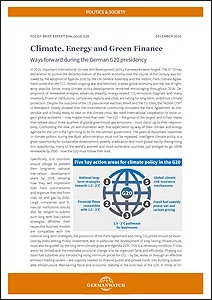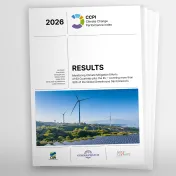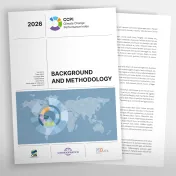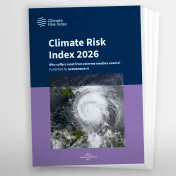
On November 30th, the eve of the German G20 Presidency, Germanwatch and Stiftung Mercator hosted an expert dialogue on climate and energy policy priorities for the G20. The outgoing Chinese Presidency had put the implementation of Agenda 2030 and the Paris Climate Treaty on the G20 agenda, emphasizing green finance and infrastructure investment. International experts and 60 guests from politics, business and civil society discussed what the German G20 presidency can and should do to counter the global climate crisis against the background of the current changes in the political landscape.
The G20 countries shape the global economy and are responsible for approximately 75% of global greenhouse gas emissions. Therefore they are paramount to combat climate change. In his welcoming remarks, Dr Lars Grotewold from Stiftung Mercator underlined the need to completely restructure the economic practices within the G20 in order to avoid catastrophic consequences of climate change. Matthew McKinnon of the UNDP, who spoke as a representative of the V20, the Finance Ministers’ Forum of the countries most vulnerable to climate change, also emphasized the responsibility of the G20 to take on leadership on the way to greenhouse gas neutrality. The 1.5°C target is a matter of survival for many of these countries, and it is essential that the G20 give high priority to this objective of the Paris Climate Change Agreement.
Christoph Bals of Germanwatch and Dr Brigitte Knopf of the Mercator Research Institute on Global Commons and Climate Change (MCC) highlighted the important role of effective carbon price signals as instruments for implementing strategies to prevent climate change. The abolition of fossil fuel subsidies and the introduction of carbon pricing within the G20 are essential to send a clear signal to markets, businesses and the finance community. This can also provide funding for investments in sustainable infrastructure. Dr Simon Zadek, who heads the Secretariat of the Green Finance Study Group at UNEP, emphasized that broader financial system reforms are also crucial to achieve sustainability and climate goals. It must be ensured that the current green trend in the financial sector does not end up as a fashion phenomenon or as mere greenwashing. Kelly Yu from IISD in Beijing reported on civil society activity during the Chinese G20 presidency, and both speakers stressed the importance of stringent sustainability criteria and disclosure requirements, as well as an active role of civil society in monitoring performance.
Because of their effectiveness, long-term goals and strategies should be central to the G20 discourse, demanded Martin Kaiser of Greenpeace Germany. He also criticized the current EU climate policy for falling far behind requirements for leadership. Without raising ambition, the EU is in no position to fill the gap created by the outcome of the presidential elections in the US. In her commentary on recent changes in the political landscape and their influence on the work of the G20, Dr. Susanne Dröge of SWP emphasized the uncertainty in Germany and Europe regarding future political cooperation with the new US government. To replace the US-Chinese alliance in international climate policy, new leadership coalitions will have to be explored in bilateral talks.
The closing statement from Christoph Bals, written from the perspective of Chancellor Angela Merkel at the end of the G20 summit in 2017, nevertheless expressed optimism that joint, ambitious action is possible even if motivated by different reasons.



